All Things Nature: How an Engineer Is Taking Zero Budget Natural Farming to Maharashtra’s Farmers
“Most farmers here had lost their connection with nature, but now many of them are getting motivated to go the natural way.”
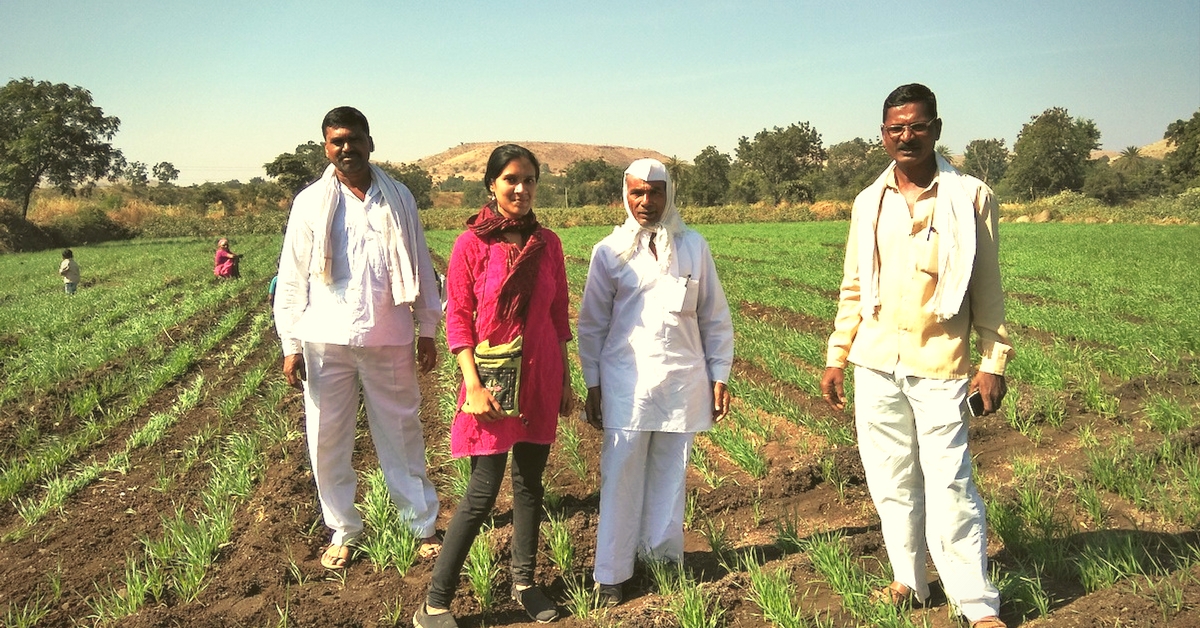
An electrical and electronics engineer by profession, 24-year-old Harshitha Prakash was working in the IT sector when she realised it was not something she really wanted to do in life.
“The field of social entrepreneurship always interested me and I was trying to explore other possible options of work,” she says. It was around this time that she came across the SBI Youth for India fellowship, a 13-month programme that gives young people in the country an opportunity to work on rural development projects.
The idea of working on-ground and implementing different solutions excited her.
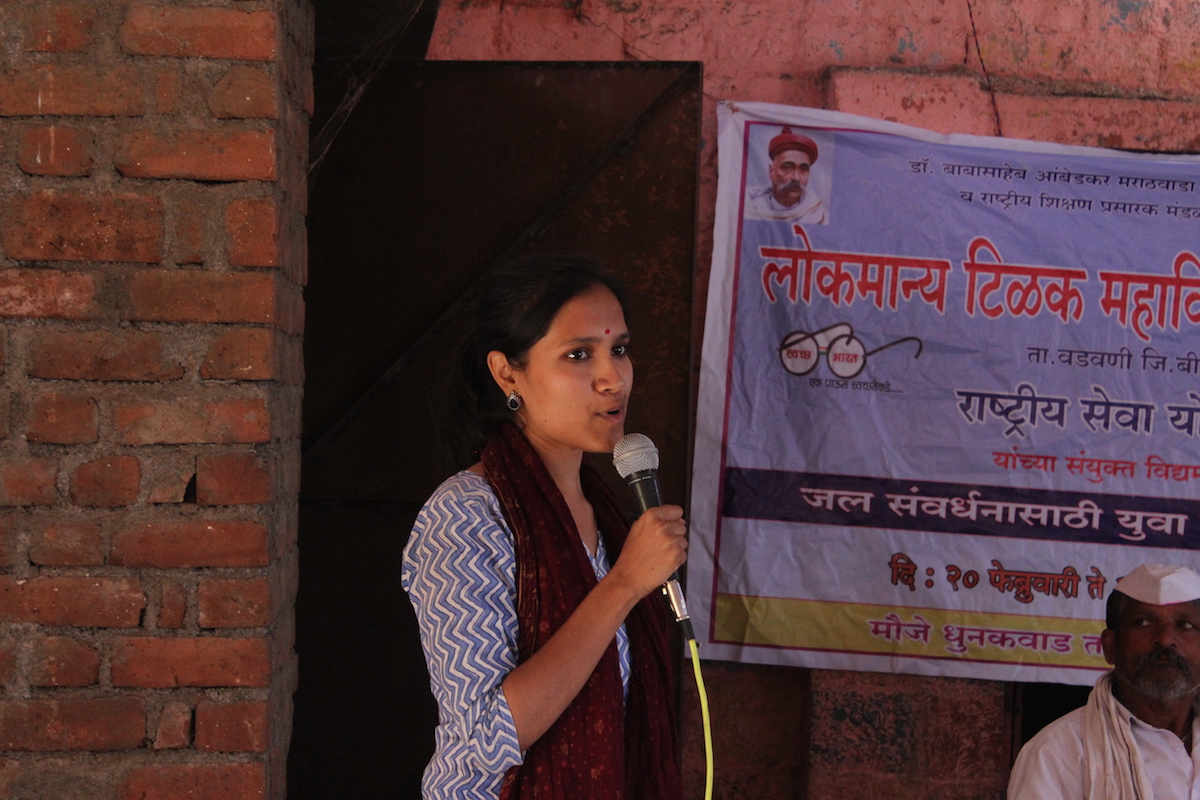
Today, she is working with the farmers of Dunakwad village in Maharashtra’s Beed district, helping them adopt the practice of Zero Budget Natural Farming. The objective of her project is to empower small-scale farmers through ZBNF so they can maximise output and reduce their dependency on external resources. She also wants to create a market for their produce.
“On talking to residents of Beed district, I found that it had been a drought-prone area for the past few years. But last year the region received heavy rainfall with hailstorms, leading to more problems. In just one year, about 450 farmers had committed suicide in the region, and many were choosing to migrate to cities for better livelihood options,” she says, adding that farmers were also not making profits with whatever produce they had.
In an attempt to reach the root cause of this problem, Harshitha visited about 20 villages in the district and spoke to as many farmers as she could.
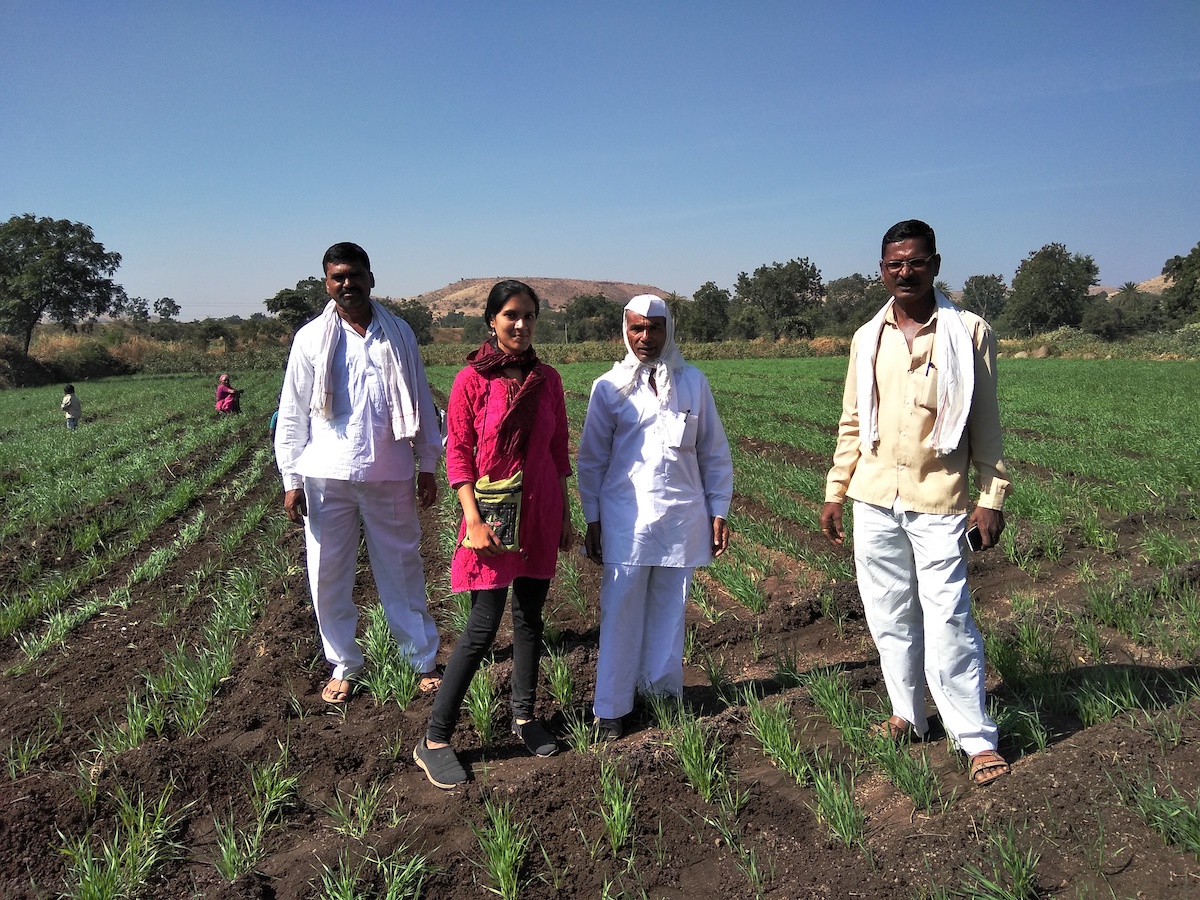
“I realised that one of the reasons behind their losses is that almost all farmers believe in using a lot of chemicals. They think that one cannot grow anything without chemicals and it is very difficult to change this mindset,” she says.
Interested in applying for the SBI Youth For India Fellowship? Applications are open till June 9, 2017
Unable to view the above button? Click here
A meeting with agriculture officers helped her understand that they do promote organic farming in the villages but it is done in a theoretical manner that is not user-friendly. Farmers are not given specific information on the different steps they should take, and there is no one to clear their doubts if they have any.
The surprising part for Harshita was that a few farmers told her they wanted to take up organic farming but didn’t have the confidence or support system to start.
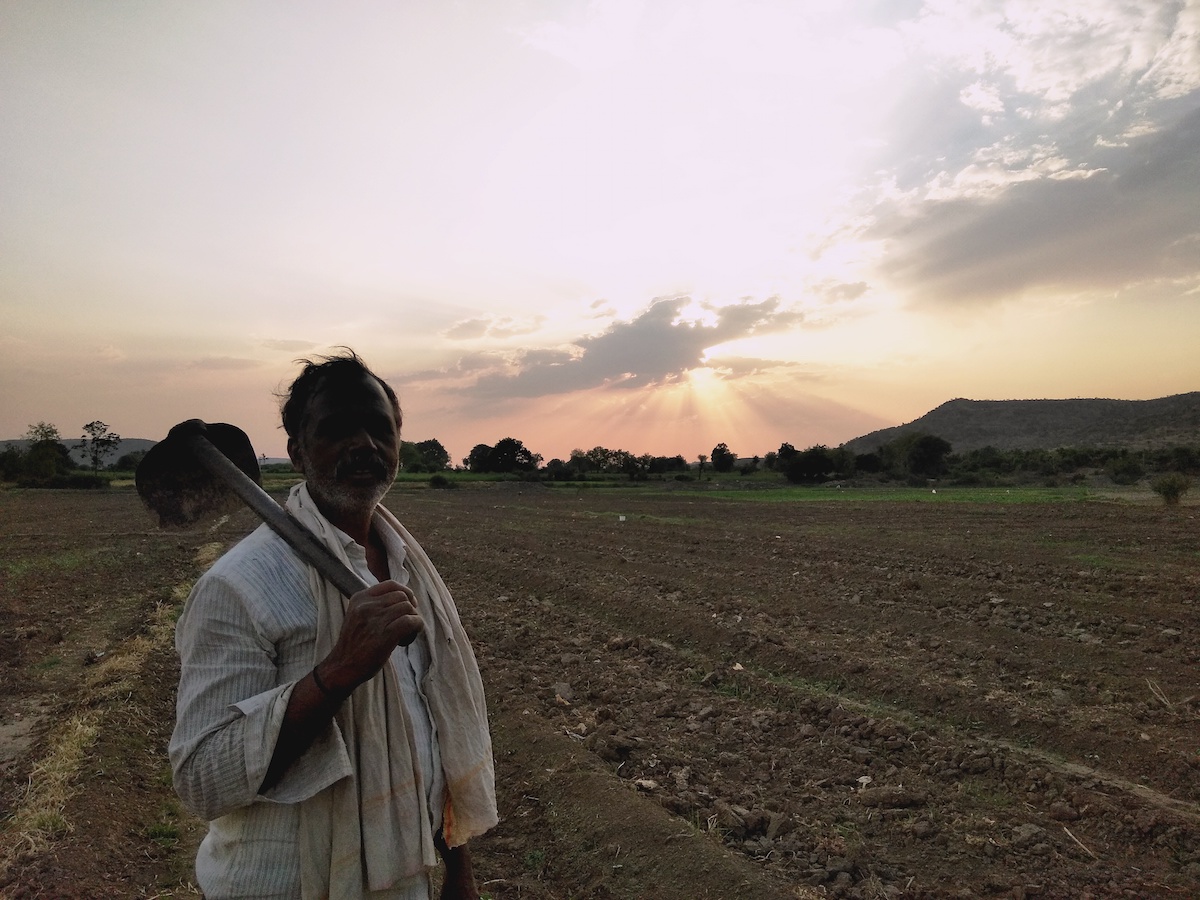
Harshitha finally decided to work in Dunakwad, a village with 400 families, where she felt the response of the villagers was positive and they were enthusiastic about organic farming.
Following this, she attended Subhash Palekar’s training on ZBNF in Karnataka. An agriculturist and Padma Shri awardee, Subhash Palekar has practiced ZBNF extensively and written many books on the subject. It is a technique in which farmers use locally-available, biodegradable materials as natural pesticides and fertilisers. They plant legumes for making the soil nitrogen-rich, rotate crops to control pests and renew the soil, compost waste to use as fertilisers, etc. Cow urine and neem leaves are used as insecticides, and cow dung acts as fertiliser.
This way, the production cost is zero because nothing is procured from outside. Everything required for the growth of the crops is available around the roots of the plant, directly from nature.
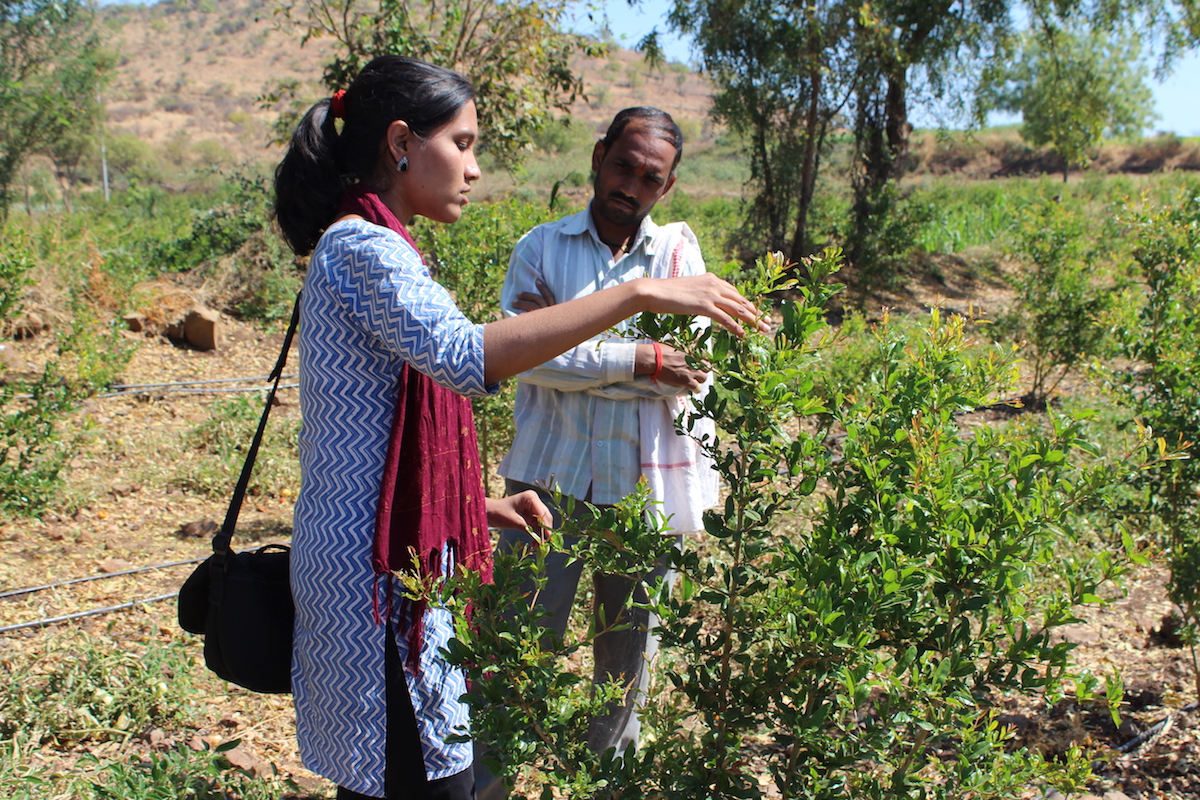
“I learned that if you really want to grow something, you don’t need chemicals. You just need to observe nature and understand how it works, like our ancestors used to. Natural farming enriches the soil and reduces the cost of investment,” says Harshitha.
Since then, it has been an ongoing process of learning for Harshita. She implements everything she learns about ZBNF and teaches the farmers. The first step was to know the people and get involved in their day-to-day activities. Then she started conducting training sessions and teaching people all about making natural fertilisers, insecticides and pesticides. She talked about the advantages of natural farming and told farmers that if they have five acres of land, they could begin with just half acre and see how it works out for them, comparing the difference between natural and chemical farming.
“Most farmers here had lost their connection with nature, but now many of them are getting motivated to go the natural way,” she says. She goes to the village for three days every week to spread awareness and conduct training sessions. Today, five people have already started natural farming on their fields.
The first of these five farmers is a woman and she started working with Harshitha in January this year.
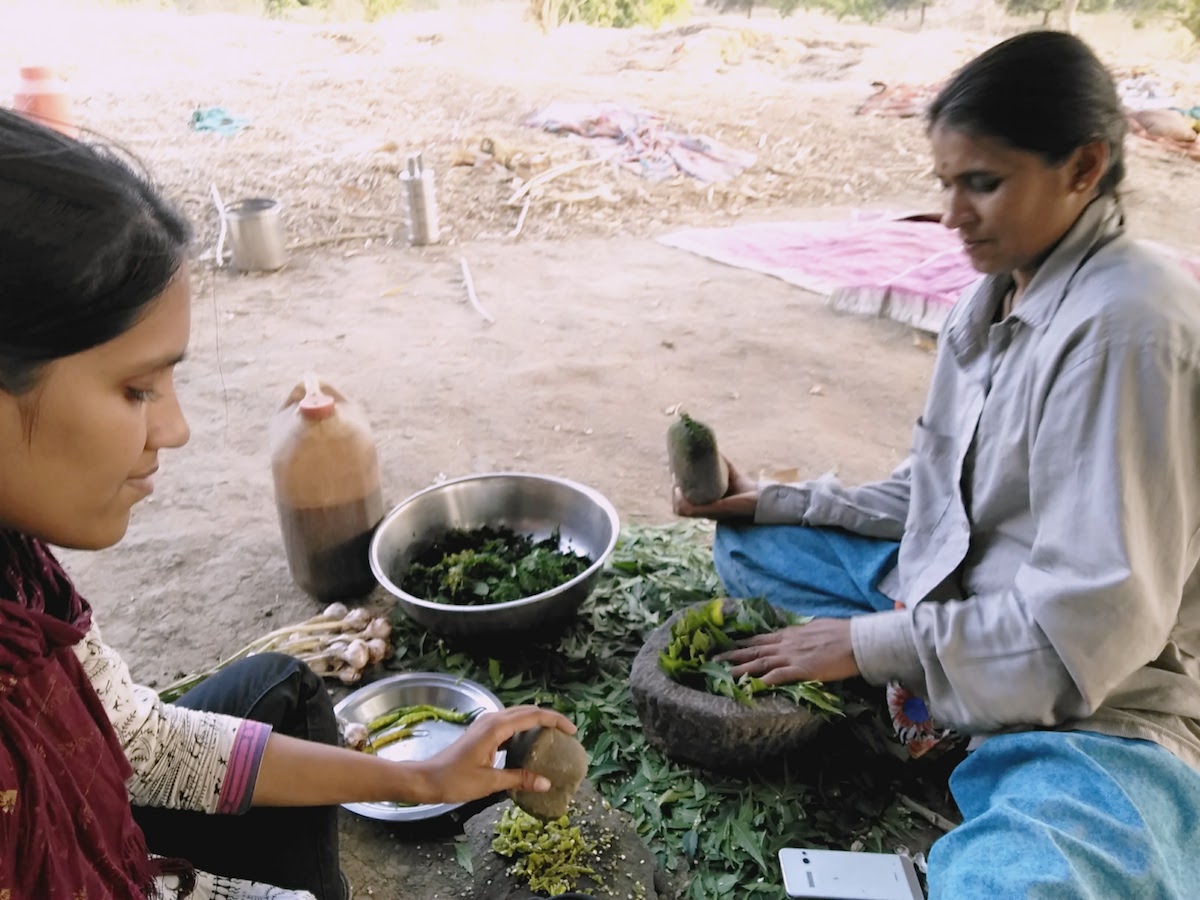
By now she has seen an increase in production of both vegetables and sugarcanes on her field. This has helped strengthen her belief in natural farming and she is now encouraging other villagers to learn more about the technique.
“One day, when I walked into the village, she started telling me about honey bees and how important it is to have them. There had been no bees around her farm for years, but within months of taking up natural farming, they were seen again. Small stories like these are very inspiring to listen to and help me move forward,” says Harshitha who is currently working on the project in collaboration with Development of Humane Action (DHAN) Foundation. It is an organisation helping young people work in the development sector.
She recently organised a small market for farmers to sell their produce. She also wanted to spread awareness in the nearby city, located about 30 km from the village, that fresh vegetables are available there.
A week after the market, customers came back looking for the same farmers because they loved the vegetables they bought.
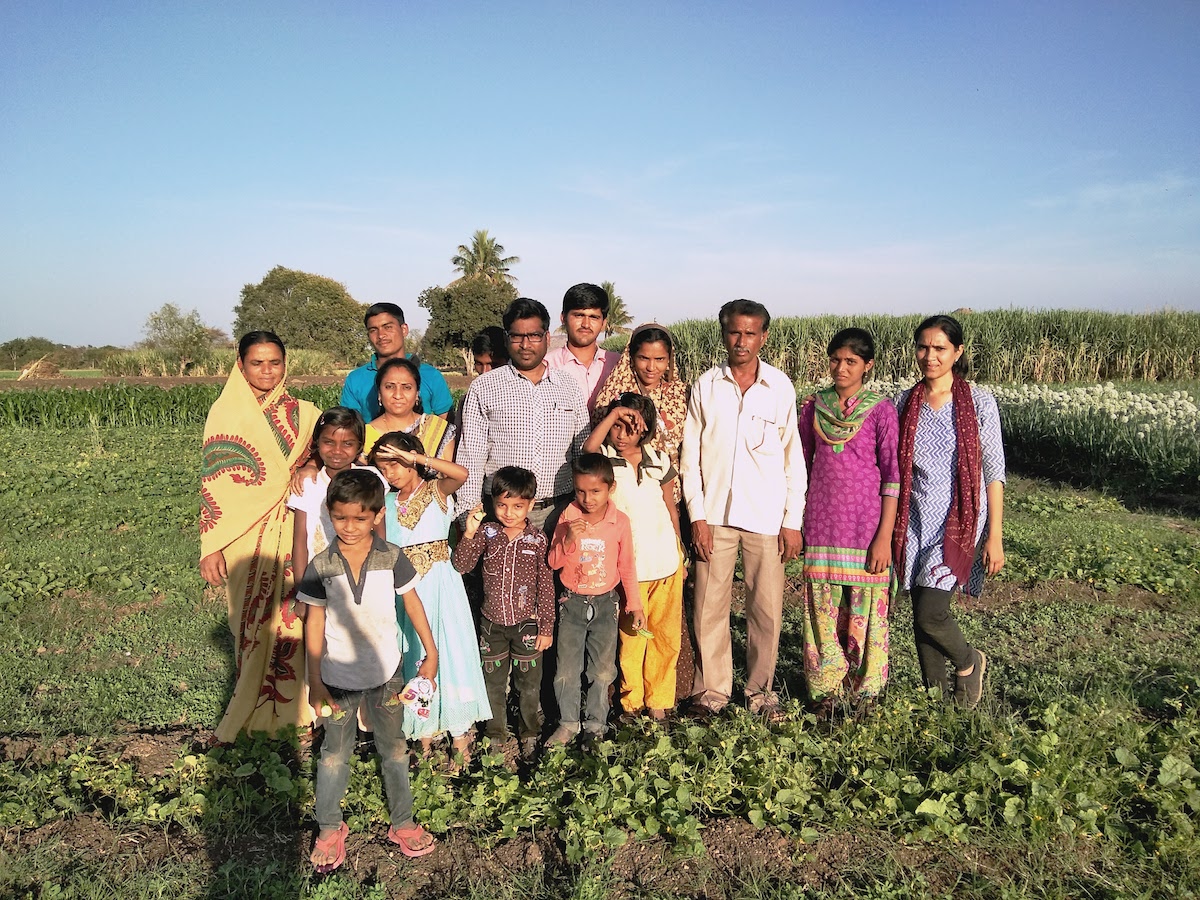
With six months to go before her fellowship ends, Harshitha hopes to inspire more farmers to take up ZBNF. She is also working on expanding the market and developing a regular setup for it.
“When living in cities, we don’t actually understand what the rural issues really are. What we can do for people. How we can help them. This journey has made me realise that if we want to help, we should go to the villages, live with the residents, understand their problems, and then come up with a solution,” she concludes.
‘SBI Youth for India Fellowship’, an initiative of SBI Foundation provides a platform to the urban youth to participate in Rural Development with their innovative ideas to address the rural struggles and also benefit from the learnings through on-ground experience.
Interested in applying for the SBI Youth For India Fellowship? Applications are open till June 9, 2017
Unable to view the above button? Click here
Like this story? Or have something to share? Write to us: [email protected], or connect with us on Facebook and Twitter.
NEW: Click here to get positive news on WhatsApp!
This story made me
- 97
- 121
- 89
- 167
Tell Us More
We bring stories straight from the heart of India, to inspire millions and create a wave of impact. Our positive movement is growing bigger everyday, and we would love for you to join it.
Please contribute whatever you can, every little penny helps our team in bringing you more stories that support dreams and spread hope.



















